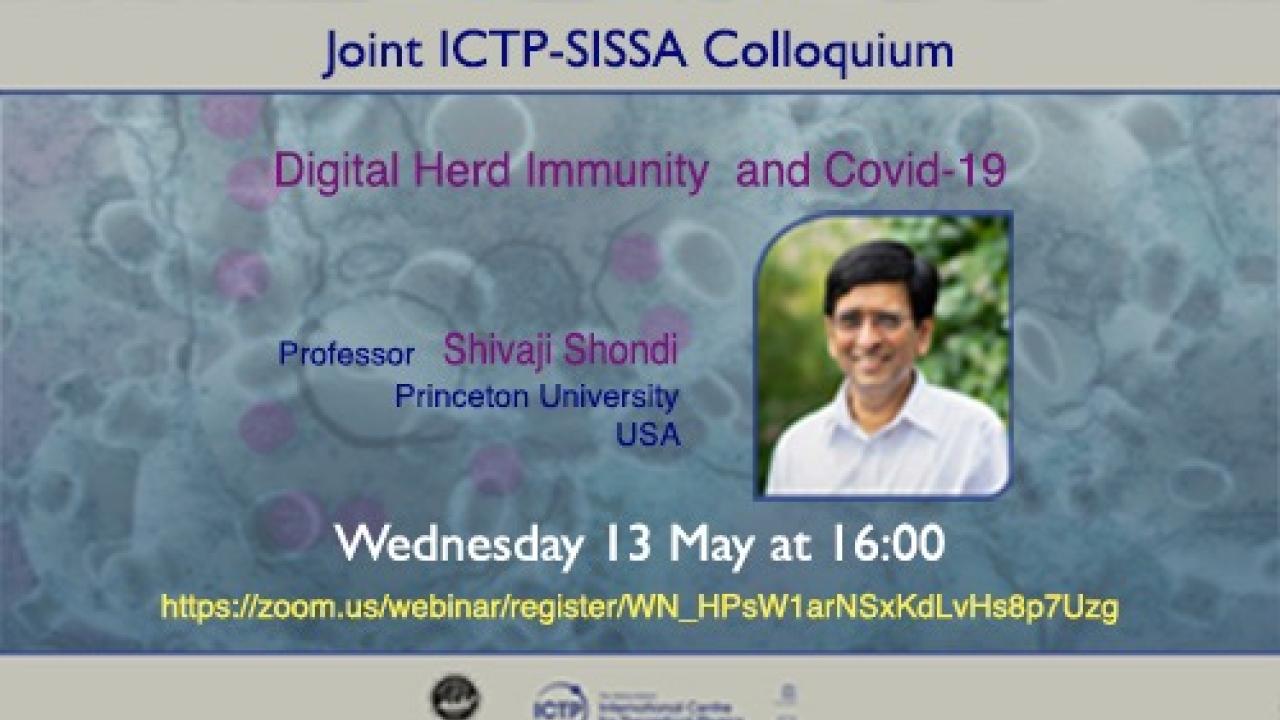
ICTP is pleased to welcome Dr. Shivaji Sondhi of Princeton University, USA, for a topical Joint Colloquium with the Scuola Internazionale Superiore di Studi Avanzati (SISSA). Titled “Digital Herd Immunity and Covid-19,” the online colloqiium will be held on Wednesday, 13 May, 2020, at 16:00 CET.
All are welcome to attend by registering for the webinar, which includes a question and answer session after the talk, or by watching the livestream or recording on ICTP‘s Youtube page.
Dr. Sondhi is a professor of physics at Princeton University, where he studies materials in which the interactions among the electrons are important, even for a qualitative understanding of their behavior, including two-dimensional electron gases that are realized in semiconductor heterostructures, superconducting fullerides, frustrated magnetic systems and the cuprate superconductors.
His current interests include Quantum Hall systems and searching for possible new phases in
the Quantum Hall regime, and the more theoretical question of constructing "better" field theories of the high-field dynamics, as well as continuous quantum phase transitions.
Webinar Abstract: A population can be immune to epidemics even if not all of its individual members are immune to the disease, just as long as sufficiently many are immune -- this is the traditional notion of herd immunity. In the smartphone era a population can be immune to epidemics even if not a single one of its members is immune to the disease -- a notion we propose to call "digital herd immunity", which is similarly an emergent characteristic of the population. This immunity arises because contact-tracing protocols based on smartphone capabilities can lead to highly efficient quarantining of infected population members and thus the extinguishing of nascent epidemics. When the disease characteristics are favorable and smartphone usage is high enough, the population is in this immune phase. As usage decreases there is a novel "contact tracing" phase transition to an epidemic phase. We present and study a simple branching-process model for COVID-19 and show that digital immunity is possible regardless of the proportion of non-symptomatic transmission. We believe this is a promising strategy for dealing with COVID-19 in many countries.
















